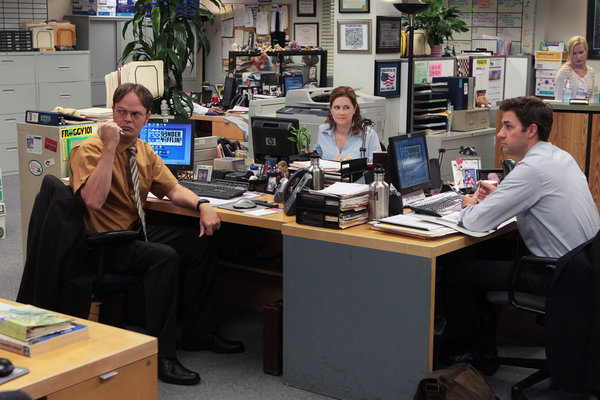Online publications come and go all the time, fleeting flickers in the stream of culture. Still, it’s unfortunate to see a good one go away.

So here’s a tribute to Think Christian, which recently shuttered its doors due to budget cuts after some 14 years of nuanced exploration of grace surfacing in pop culture. Think Christian was a project of Reframe Ministries, the media ministry arm of the Christian Reformed Church, but it never felt like a house PR organ. Instead, it was an embodiment of the best of the Reformed intellectual tradition: thoughtful, curious, examining culture through a particular biblical lens and inviting anyone with a web connection to come have a look. It’s not the only casualty of the CRC’s ideological purge (someone else can speak to the muzzling of The Banner’s editorial voice), but Think Christian had an impressive run, so today I raise my morning coffee in commemoration.
The site’s bread and butter was short posts exploring a new pop culture offering and asking, “How does this show, movie, music, game, or piece of online culture interact with God’s story?” Unlike more dogmatic faith-and-culture websites, the question was never just “Is this good or bad?” or “Is it okay for Christians?” but how a cultural text is doing what it’s doing—how being the vital question for arts criticism.



Over the years we got explorations of Taylor Swift, A Tribe Called Quest, The Bear, The Ballad of Buster Scruggs, Squid Game, Bojack Horseman, Super Smash Bros., Kendrick Lamar, Everything Everywhere All at Once, and so much more. Over the years the site inspired readers to discover new works of art or simply laugh out loud at a well-phrased question like “Do We Really Need Christian Lofi?”
The site’s driving force was producer-editor Josh Larsen, who nurtured a collective of writers and expanded the site into a video channel, a movie club, a podcast, a series of e-books, and on. (Fear not, you can still find his film criticism in his newsletter, on the podcast Filmspotting, and in his books.)

Some of my favorite posts on the site brought me back to familiar media with fresh eyes. In a perceptive piece on the mundane aesthetics of The Office, Bethany Keeley-Jonker considers how the show uses the tedium of fluorescent cubicle life to help us notice how the sublime breaks into the everyday:
Much of my life feels like an episode of The Office: full of difficult people, like me, being difficult and self-involved and toiling away at nothing particularly important. But God shows us over and over again that regular people in everyday places are exactly the ones he works through. We just have to listen for God’s voice, even if we’re in the mall food court.

It’s easy for me to forget, with my Spotify and Netflix queues loaded with stuff to check out, how hungry I have been in the past for thoughtful guides who can help make sense of the torrent of pop culture. There are folks out there starved for this kind of guidance. I’ve met them. (They all seem to be Pedro the Lion fans for some reason.) Their eyes light up at the possibility that they don’t need to choose between sacred and profane art, that they can use their spiritual tradition to discern what’s valuable and what’s not in mass culture. Think Christian’s tagline, “There’s no such thing as secular,” expresses the conviction that every square inch of culture and creation can be a place to listen for God’s activity.
What’s not hard to remember is how wearisome it can be to navigate the digital world solely through algorithms that are constantly pushing more content at us. In that context, a calm human voice can itself be an act of grace. “More than ever, Christians are tempted to let their ears grow dull, wearied by the constant barrage of different perspectives,” Chad Ashby writes in a piece on pop music. “However, Dietrich Bonhoeffer astutely notes, ‘He who can no longer listen to his brother will soon be no longer listening to God either. . . We should listen with the ears of God that we may speak the word of God.’. . . Listening is a spiritual act.”
When institutions no longer support the arts or cultural engagement, it says something clear about what they value. Like Josh in his farewell post, I urge you to support the publications and guides who you appreciate.
Even thinking in terms of institutional publications feels countercultural in a world of independent influencers on YouTube, TikTok, Substack, and other platforms. Our dominant forms of distribution are always changing. I recently listened to a compelling exploration of how Zohran Mamdani’s embrace of vertical video contributed to his stunning victory in the New York City mayoral primary. In just the last few years, the influence of Twitter, whose text-based format encourages opinionating and argument, has waned in favor of video on TikTok and Instagram, which may encourage a bit more social generosity—at least that was the premise of the two journalists on this podcast. There’s still plenty of drek on TikTok and Instagram, but it struck me as a plausible possibility—and a worthy topic for a Think Christian post.
To which I say yes to tech innovation and new forms of expression, and yes to independent voices, and yes as well to collectives unified by a shared spirit, and yes—critically—to institutional support. We need them all.


9 Responses
Definitely a loss for the CRC and the broader Christian community. I pray that the staff of TC find meaningful—even better—jobs that allow them to use their media gifts in ministry.
Thanks for this, Jonathan! I know that, for years, Think Christian operated with a target on its back for those within the CRC who wanted to narrow the scope of Christian thought and critique. Even with that kind of persistent pressure, the editor and his “collective of writers” kept us engaged and informed with the shaping influence of popular culture as voices in the void. So, I join you and raise my morning orange juice in tribute to Think Christian’s tireless attempt to make a difference. It was a good run. But as you say, another casualty in the shuttering of thought in the CRC.
As the author notes, Think Christian was shuttered “due to budget cuts”. All organizations must make choices about core functions and funding, particularly in times of fiscal constraint. But then the author pivots to claiming that Think Christian’s shuttering is a “casualty of the CRC’s ideological purge”. I don’t think the author has any data to back this assertion. Budget cuts are necessary part of leadership decisions when budgets are tight.
But it seems to me that beyond that little critique on my part there is a fairly glaring solution: Instead of the author and others here writing and reciting the eulogy for Think Christian, they could better revive it with their own funding. Surely this noble effort deserves to go on. If it is worth saying that someone else should continue to fund it, it seems like the first inclination of those aggrieved by the shuttering should be a robust effort to resuscitate it. Perhaps it could be hosted and paid for right here at RJ – that is, unless RJ has other priorities for its budget. But if that is the case, how is RJ’s choice any different than the choice of the CRC? Or perhaps the RCA could fund it? Many of the authors and commenters here have strong ties to the RCA and great appreciation for the arts – it seems like a natural fit. Anyway, I guess my point is that we all make choices, and it’s always easy to criticize the choices of others even as we stand by and essentially make the same choice.
Kirk, when you use your real name or explain why you can’t, your comments will appear. Thanks!
Hi Eric, budget cuts and the CRC becoming a smaller denomination are directly related. There’s plenty of evidence for it.
As far as reviving arts organizations and paying writers and artists … I’d love to be in a position to do so!
Hi Jon,
You may not realize how little you know about how these decisions are made and what has led to them. I’ll leave it at that on your assertion about ideological purge.
As to your second sentence, it seems, then, that you find yourself in a strikingly similar situation to the CRC: Not enough money to go around for everything. Thanks for the reply.
Amen! Wonderful tribute to a creative media morphing ministry. With podcasts, written critiques, study guides, videos, etc, Josh and his team were always exploring new ways to engage with popular culture. This is another example of a CRC brain drain. Godspeed to Josh and the TC writers/content creators as they find new homes. Well done good and faithful servant.
Thank you for this excellent tribute and the recognition of what has been lost. I had the good fortune to write over 20 pieces for TC in recent years. Each pitch accepted and shepherded by the wise and stewardly Josh Larsen gifted me a needed outlet to share faith in the context of art that I love. What a blessing this was! Although no one got rich, it should also be pointed out that Josh paid his contributors. Each time a check came, I made a point to spend it on something generative: a meal with my wife, a theatre ticket, a tithe, etc.
It’s more than sad that TC is no longer sending thoughtful Christian takes on popular culture into the cybersphere. I still hold out hope that an organization with the resources to keep doing this well will step forward. In the meantime, I’d strongly recommend visiting the still active website at https://thinkchristian.net/ before it disappears. There is much there to ponder, savor, and celebrate.
Thanks for writing this Jon. I’m proud of the writing I did for tc and sorry to lose the outlet. It’s harder and harder to maintain spaces for good faith engagement lately. Grateful for the continued work of perspectives journal.